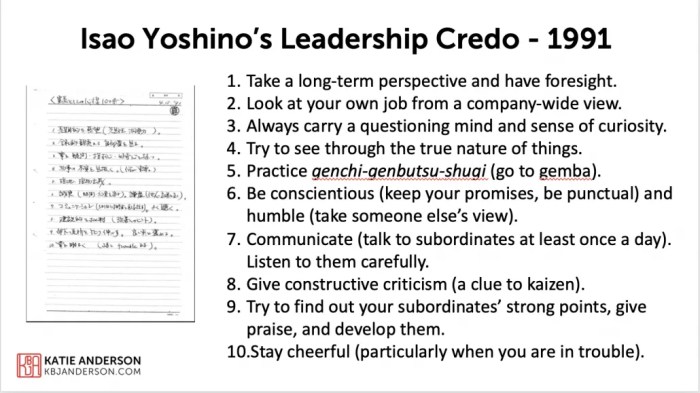All of the following are true of leadership credos except, they are concise, clear, and easy to understand. They are also aspirational, providing a vision for the future and inspiring others to follow. Leadership credos are also actionable, providing guidance for leaders on how to behave and make decisions.
However, one statement about leadership credos that is not true is that they are always static. In reality, leadership credos should be reviewed and updated regularly to reflect the changing needs of the organization and its leaders.
True Statements about Leadership Credos

Leadership credos are concise statements that articulate the core values, beliefs, and principles that guide a leader’s actions and decisions.
They serve as a roadmap for ethical and effective leadership, providing clarity and direction in complex and challenging situations.
Effective leadership credos are authentic, aspirational, and actionable, inspiring followers and creating a shared sense of purpose within organizations.
Benefits of a Clear and Concise Leadership Credo, All of the following are true of leadership credos except
- Provides a foundation for ethical decision-making.
- Promotes transparency and accountability.
- Fosters trust and credibility.
- Inspires and motivates followers.
- Creates a positive and productive work environment.
False Statements about Leadership Credos

Misconception: Leadership credos are only for high-level leaders.
False: Leadership credos are valuable for leaders at all levels, from entry-level managers to CEOs.
Misconception: Leadership credos are static and unchangeable.
False: Leadership credos should be reviewed and updated regularly to reflect the changing needs of the organization and the leader’s own personal growth.
Misconception: Leadership credos are simply slogans or mottos.
False: Effective leadership credos are more than just catchy phrases; they are deeply rooted in the leader’s values and beliefs and provide guidance for everyday actions.
The Role of Leadership Credos in Organizational Culture

Leadership credos play a crucial role in shaping organizational culture by:
- Establishing a shared set of values and beliefs.
- Creating a sense of unity and purpose.
- Guiding decision-making and behavior.
- Inspiring innovation and creativity.
- Attracting and retaining top talent.
Examples:
- Zappos’ “Deliver WOW Through Service.”
- Google’s “Do the right thing.”
- Starbucks’ “Create a culture of warmth and belonging.”
Best Practices for Developing Leadership Credos
- Reflect on your core values and beliefs.
- Identify the key principles that guide your leadership.
- Write a draft credo that is clear, concise, and actionable.
- Get feedback from trusted colleagues and mentors.
- Review and update your credo regularly.
Tips:
- Use simple and direct language.
- Be specific and avoid vague generalities.
- Make it personal and authentic.
- Keep it short and memorable.
Challenges and Opportunities in Implementing Leadership Credos: All Of The Following Are True Of Leadership Credos Except

Challenges:
- Overcoming resistance to change.
- Ensuring alignment with organizational values and goals.
- Holding leaders accountable for living up to their credos.
Strategies:
- Communicate the credo effectively to all stakeholders.
- Provide training and development opportunities to help leaders understand and apply the credo.
- Create a culture of feedback and accountability.
Opportunities:
- Driving positive change within the organization.
- Inspiring innovation and creativity.
- Attracting and retaining top talent.
FAQ Compilation
What is the purpose of a leadership credo?
A leadership credo is a statement of the values and beliefs that guide a leader’s behavior and decision-making.
What are the benefits of having a leadership credo?
Having a leadership credo can help leaders to stay focused on their priorities, make better decisions, and inspire others to follow their lead.
How can I develop a leadership credo?
There are many different ways to develop a leadership credo. One common approach is to start by identifying your core values and beliefs. Once you have identified your core values, you can begin to write a statement that expresses how these values will guide your leadership.